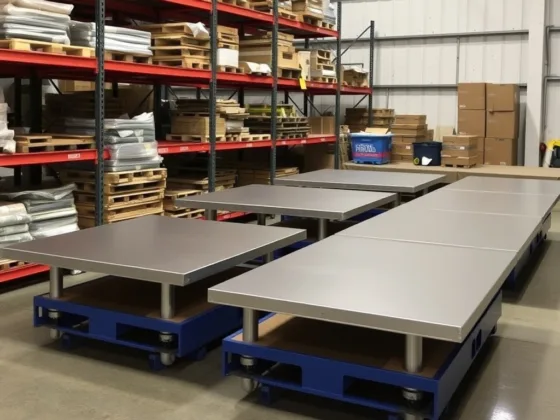Table of Contents Show
When we talk about the major life stressors, you cannot skip “moving to a new house” from that list.
Regardless of how meticulously you package your goods, there is always something that goes wrong. But do not give up hope just yet; we have got all the relocation advice you could need:

1. Declutter Your House
To some people, decluttering may seem like just clearing the counters. But it goes way beyond that.
First, you need to understand that even if you put the mess in a cabinet instead of on the counter, it will still be there, waiting to spill out and take over your home once again.
Decluttering has several upsides that extend beyond saving money. To begin with, having fewer things to keep track of makes life simpler.
For example, get rid of unnecessary kitchen gadgets if you have to spend a lot of time looking for an item but cannot find it because the drawer is crammed with them.
Sadly, couples get into a dispute over minor issues during decluttering. Sometimes it is about a particular object that one person likes and another loathes.
This is a situation where you and your partner should take some time to talk about what makes you feel this way. Finding out why these feelings arise can help you devise a strategy for dealing with them.
If you are running short of time, you can temporarily store items in a storage unit and decide their fate once you have settled in the new house.
The good news is that finding a storage unit is not difficult anymore. For example, if you live in Bonney Lake, you just need to Google “storage Bonney lake” and the search engine will show you tons of options.
2. Hire a Moving Company
When moving, getting injured is the last thing you would want. Instead, contact a moving company if you are transporting bulky items such as furniture or heavy boxes. This will help prevent any accidents along the way. An expert moving company has the necessary equipment to carry your items safely.
Unlike the common assumption, hiring a moving company is a lot cheaper than DIY moving. For example, when relocating on your own, you will need to buy packing supplies and make sure you are done with the packing before the moving day. Additionally, unloading your belongings takes a significant amount of time and effort.
However, you cannot expect the same level of professionalism, skills, and dedication from all moving companies.
So we would recommend you consider these factors before signing the dotted line with a moving company. It would help if you ideally look for a company with the following qualities:
- Good Track Record: An established moving company is often preferable to one that is just starting. With a bit of online research, you can get a broad notion of the company’s track record.
- Insurance and License: If you are moving from one state to another, you should tap into the company’s DOT number on the US Department of Transportation’s website.
Likewise, if you are moving inside the same state, you should double-check the company’s insurance and license status using the license database.
Finding out if a company has insurance and a license will help you protect your belongings and make it easier to get compensation if your belongings are damaged during shipping.
- Good Customer Service: A moving company’s customer service quality can tell you a lot about its reliability and efficiency.
One of the best tactics to evaluate the efficiency of a company’s customer service is to look at how accessible they are through various communication platforms, such as emails and mobile phones. Also, keep an eye on how the customer service personnel answers your questions.
Read Also:
3. Do Not Procrastinate Over Packing
Packing is something that should never be put off. Even though it is not a fun thing to do, the longer you put it off, the more challenging it will become.
Start by putting away things you do not use as often or goods that are only useful at certain times of the year.
Begin by removing all of the artwork, decorations, and other items from each room one by one. Providing yourself adequate time to pack will also help ensure the safety and security of your belongings during the relocation.
4. Look After Yourself
As you may have already discovered, relocating to a new home can be a stressful experience. Therefore, you must look after your health and well-being. Get at least eight hours of sleep each night to avoid being knocked off balance.
Eating healthy food is equally vital. Though you may be tempted to eat junk food during this time, you might not have a working kitchen. In addition, the energy and stamina you gain from eating healthy food will help you move more efficiently.
When moving, stock up on food that can be stored and transported. Pre-made sandwiches and pre-cut fruit, like bananas and apples, are good options. You can also have hard-boiled eggs, green salads, and cold pasta.
5. Take Note of the Box’s Weight
Another essential moving tip is to pay attention to the weight of your boxes. Increasing the weight of the items will make them difficult to carry and more prone to breakage.
Fortunately, you can deal with this problem by putting heavy items like books in tiny boxes and light stuff like linens and towels in large ones.
Alternatively, fill the bottom half of the box with heavy goods and the top half with lighter ones. That way, your boxes will not get too heavy because the weight is evenly distributed throughout.
6. Take an Overnight Bag With You
It would be best to pack an overnight bag regardless of moving locally or across the country. Even if you use moving hacks and ideas to make the process easier, you will still be worn out at the end of it all.
An overnight bag will ensure that you have everything you need for a good night’s sleep. Forget about searching through every single box in your new home for the one thing you need. Having an overnight bag ready will save you time and stress.
Conclusion
It is natural to feel overwhelmed when moving into a new home. But subscribing to the six tips described above can make the process a lot less stressful.
At the same time, do not be hesitant to seek assistance from a friend or a professional service provider.









